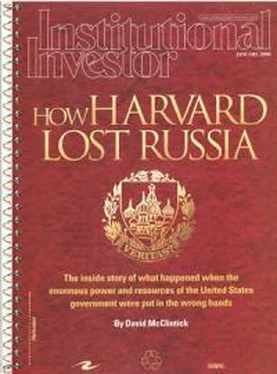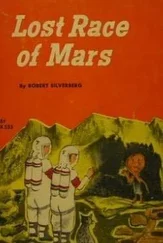Considering the handsome taxpayer-provided listening post-HIID was operating in Moscow, it’s not surprising that George Soros, whose Quantum Fund invested $2.5 billion in Russia, would be keen to have something comparable flying the Stars and Stripes in Kiev – only with his agents in charge. Under cover of the U.S. assistance program, privileged information could first be obtained and then passed on in discussions devoted formally to -“reform policy.” Surrounded by an HIID set-up, Soros would enjoy a certain authority his money alone couldn’t provide him. But that authority – that extra dollop of importance – can be most helpful even if illegitimate. The natives only know what they see, and nobody sees small pox on a blanket.
Questions and answers between Gilman and the State Department were kicked back and forth for several months. In late January 1996, Sachs contacted Gilman and asked that he remove the hold that the congressman had placed on the money allocated for Ukraine. George Soros too contacted Gilman’s office. Gilman complied and lifted the hold, but with the proviso that the grant had to be awarded on a competitive basis and could not exceed $2 million. After that, he called for a GAO (Government Accounting Office) investigation into HIID’s Russian activities and the grant request for Ukraine……………
And Kept It Working
…… In early June 1998, as Russia’s descent into the spiral of unmanageable debt accelerated, once again the issue of a possible IMF bailout emerged. As the situation went from bad to worse to near meltdown of the bond market, Yeltsin dispatched Anatoly Chubais to Washington to seek approval from the U.S. Treasury for yet more IMF cash.
Simultaneously and coincidentally, Russia’s top auditor, Veniamin Sokolov, Chief of the Counting Chamber, which is the Russian GAO, arrived in the United States with documents detailing incomprehensibly large amounts of corruption involving assistance money, state funds, and dicey natural resource sales on world markets.
It just so happened that World Bank officials were just then looking every which-a-way without success for hundreds of millions of dollars of lost coal loans. Cables flew from Moscow to Washington as the Moscow office tried frantically to stop the scheduled meeting between Sokolov and World Bank president James Wolfensohn, a meeting that was the principal focus of Sokolov’s visit.
Making the rounds of newspaper editorial boards, think tanks, and the U.S. Congress, Sokolov painted a picture of a Potemkin economy in which money itself had been socialized among a handful of large banks and the very top tier of an economically incompetent oligarchy. (Complying with IMF dictates had left the Russian economy a money supply that was only one-sixth of that considered normal for an economy of its size. Consequently, only the banking sector had actual rubles of any significance, leaving the general population ruble-poor.)
“The official economy about which you read in your newspapers has absolutely nothing to do with our national economy. Recently when we finished our audit of the Central Bank, we had to refuse to certify their annual report. It was the same at the Finance Ministry, where we had 150 auditors working for six months,” Sokolov said. “All our financial and banking authorities’ methods are designed to conceal the facts rather than to reveal them.
“When Americans read that Russia has an inflation rate of fourteen percent that figure refers only to the oligarchical economy and hides an eighty percent inflation in the national economy. But since the national economy is cash-starved and lives now by negative barter, meaning I’ll give you this and you give me that but neither one of us will pay the other, nearly our only product is debt. Our enterprises have finally used up all their reserves and this is why we are in crisis,” Sokolov told his U.S. audiences while comparing any new IMF lending to handing a drug addict more narcotics.
Since Russia’s chief auditor was anxious to cooperate in locating the true destination of U.S. and multilateral aid money, and since the Counting Chamber is mandated to audit any and all enterprises and government agencies in the Russian Federation, the U.S. Attorney in Boston and the USAID inspector general, who were assigned to sorting out the burgeoning HIID scandal, flew to D.C. from Boston to meet privately with Sokolov. The FBI followed up, and Sokolov seemed pleased.
What Sokolov wanted was for the U.S. money flow as designed to stop, it was corrupting his country from the top down, and the people were suffering terribly from the poisons it released into the atmosphere. Russia’s misdirected natural resource wealth was enough of a headache, but to have Americans dumping billions more into the country just to keep their artificial bond market functioning on behalf of a small crowd of very rich people and their institutions was a kind of genocide in its effects.
Surely, Sokolov reasoned, savvy Americans and their responsible and practiced legislators would want the money stopped as well. Why would they burn up their own wealth? Sitting beside him as he spoke, I couldn’t help but think a Mr. Smith in the shape of one Russian Mr.Sokolov had come to Washington. Sadly, Frank Capra wasn’t alive to direct and keep an uplifting story on the script.
At the conclusion of an encouraging meeting the following day with the House International Relations Committee head, Representative Benjamin Gilman, in which the two men agreed to collaborate, Gilman insisted his chief staff member arrange a meeting for Sokolov post haste with Republican Senator Jesse Helms, one of foreign aid’s greatest critics. The day’s developments promised results and for somebody somewhere that was apparently a problem.
It doesn’t necessarily follow that it was Representative Gilman’s dinner date with George Soros, then up to his eyeballs in Russia’s illiquid and collapsing equities market, the very evening of his meeting with Sokolov that stalled congressional cooperation with the Russian Accounts Chamber. Nor does it follow that Gilman’s Russian point man on staff two days later countermanded his boss’s instructions independently or that he received new instructions when he professed surprise at being queried as to whether Congressman Gilman would be accompanying Sokolov to the meeting with Senator Helms.
The meeting that Gilman had ordered with considerable urgency had “slipped his mind,” the staffer said, and that meant another hour of Sokolov’s time was wasted in a pointless meeting with a couple of stray staffers dredged up from Republican Congressman Gerald Solomon’s office recalling their personal epiphanies upon realizing that the Russian people, the former Soviets of the defunct Evil Empire, were – well – just folks. In other words, Veniamin Sokolov got the ne plus ultra Washington brush off; he was treated as if he were a constituent.
Later that June, Gilman’s Committee on Foreign Relations, after having passed up the opportunity Sokolov had offered of exploring official corruption and the misdirection of U.S. taxpayers’ billions, instead held hearings on Russian organized crime . Over the coming years, Representative Gilman’s congressional posse never did round up a single varmint, organized or unorganized.
When asked what it would take to move a proper investigation forward, a Treasury Department lawyer replied, “Nothing will make that happen. When the Clintons fired all U.S. Attorneys at once in 1993, they knew what they were doing. All those newly appointed prosecutors got the message. There will never be a Justice Department investigation of any Clinton administration policy or program that might make the Clintons look bad.”
While Veniamin Sokolov was finishing out his fruitless 1998 American journey (he never did meet with the World Bank’s Wolfensohn, the cables worked, and last I heard the World Bank never did recover the 100s of millions in coal loans), Anatole Chubais, former head of the Russian privatization program and deputy premiere, met with Lawrence Summers and Strobe Talbott. The topic was how to get sufficient billions into Chubais’s hands to keep the bond market humming. Other “private meetings” were arranged, and before departure, Chubais informed the Russian ambassador that he, the ambassador, was to consider Anders Aslund the deputy premier’s “personal emissary.” The surprise promotion from the leader of a crowd Aslund refers to as “my boys” failed to prompt the Carnegie Foundation “senior analyst” to register as a Russian government lobbyist as required by law.
Читать дальше






![Джонатан Димблби - Barbarossa - How Hitler Lost the War [calibre]](/books/385421/dzhonatan-dimblbi-barbarossa-how-hitler-lost-the-w-thumb.webp)





